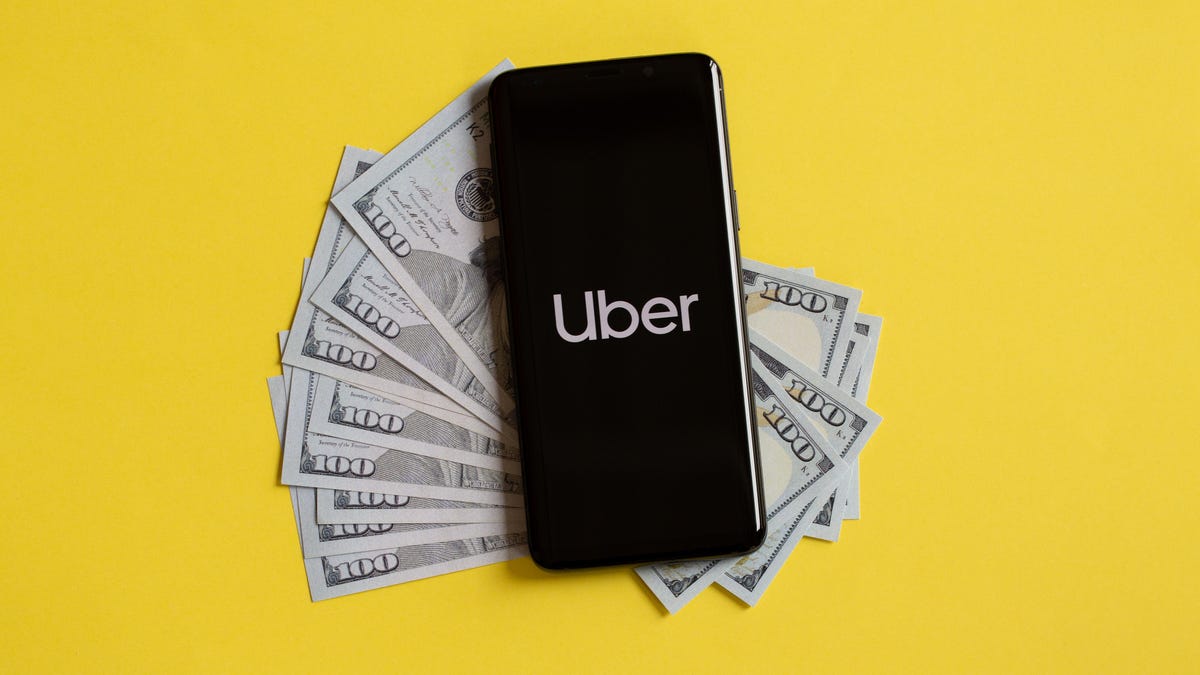Uber's first-quarter earnings show massive losses due to coronavirus
Plummeting rides have overshadowed the ride-hailing company the past few months. But its Uber Eats food delivery business shined.

Uber posted a $2.9 billion net loss in the first quarter.
Uber hasn't had an easy time as a public company. The novel coronavirus, which has brought much of the ride-hailing company's business to a halt, hasn't helped. On Thursday, Uber's first-quarter earnings highlighted the financial troubles the company has experienced, showing significant losses.
Uber said its revenue rose 14% from a year earlier to $3.54 billion, slightly beating the average analyst forecast of $3.51 billion. But, the company posted a net loss of $2.9 billion in the first quarter, which was greater than expected by analysts. It's the largest loss that Uber has recorded over the past three quarters.
"While our rides business has been hit hard by the ongoing pandemic, we have taken quick action to preserve the strength of our balance sheet, focus additional resources on Uber Eats, and prepare us for any recovery scenario," Uber CEO Dara Khosrowshahi said in a statement. "Our global footprint and highly variable cost structure remain an important advantage, as our expectation is that the rides recovery will vary by city and country."
As the CEO indicated, Uber has seen its core ride-hailing business significantly affected by the pandemic, even as the company has tried to expand other offerings. Over the past few months, the company has laid off employees, shuttered offices around the world and seen its stock price drop 68% from $41 in mid-February to $13 in mid-March.
Uber isn't alone. The entire economy has ground to a halt during the pandemic, and travel-related businesses have been significantly affected. Airbnb said it was laying off 25% of its staff earlier this week, and Lyft said last week it was letting go of 17% of its workforce.
On Tuesday, Uber said it was laying off 14% of its full-time employees, about 3,700 people. The company said the layoffs are part of a plan to reduce operating expenses due to the "economic challenges and uncertainty resulting from the COVID-19 pandemic." Khosrowshahi also agreed to waive his base salary for the remainder of the year. Uber had already let go of more than 1,000 employees in three rounds of cuts last fall.
During an earnings call with investors on Thursday, Khosrowshahi said gross bookings for rides in the first quarter, ending on March 31, fell by 3% from the same time last year. By mid-April, he said ride volume was down by 80%. Since that low point, rides have slowly started to pick back up, Khosrowshahi said.
He quoted the hockey player Wayne Gretzky, saying, "Skate to where the puck is going, not where it has been."
In after-hours trading, Uber's shares rose 7% to $33 after the CEO's announcement that rides were beginning to rebound.
During the first quarter, Uber stuck to its "Uber for everything" mantra, focusing on its Uber Eats food delivery service and starting new initiatives, such as giving frontline health care workers free rides and meals. The company also homed in on its Uber Freight trucking service for delivering goods across the country. Khosrowshahi said Uber Eats bookings were up 54% for the first quarter as more people stayed at home.
On Thursday, Uber announced it was leading a $170 million investment in scooter company Lime. Other backers include Alphabet, Bain Capital Ventures and GV. With the investment, Lime acquired Uber's bicycle and scooter rental business, known as Jump. Uber said Lime will now be further integrated into its app.
Uber has hurdles on other fronts. Along with Lyft, the company is facing a lawsuit brought by the state of California that could cost them hundreds of millions of dollars in civil penalties. The state's attorney general, Xavier Becerra, filed the lawsuit against the two ride-hailing companies on Tuesday, alleging they've violated state law AB 5. The law, which went into effect in January, aims to ensure workers have adequate labor protections by classifying them as employees.
Uber is also still dealing with the coronavirus outbreak. And, as long as much of the world continues sheltering in place, the company's business will likely remain in flux.
"On the other side of this dark valley, the Uber business model will likely look a lot different for the next few years (at least)," Wedbush analysts wrote in a note on Wednesday. "The company must rationalize costs and a smaller operation to focus on attaining profitability in this 'new normal' backdrop."

